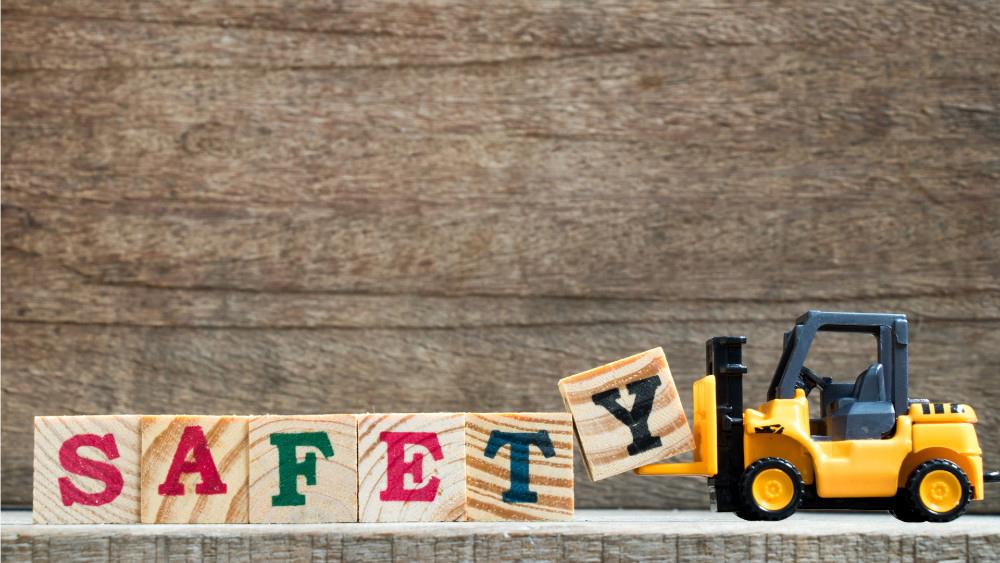

The Builders Merchants Federation held its Health & Safety Forum via a webinar run by health and safety consultancy, Southalls, on Wednesday June 10. BMN reports
The BMF’s latest forum - open to both suppler and merchant members - covered the following topics: what have we learnt while trading during COVID-19?; how should we be operating?; what you should have in place in terms of paperwork; and how to ensure you don’t forget ‘non COVID-19’ health and safety.
Ian Hatherly, Operations Director at Southalls, which has worked with ‘resilient’ merchants for over 15 years and physically visits 700 branches a year, opened proceedings by admitting that all changes as a result of Coronavirus have been fast paced, but a continual reminding of control measures put in place by businesses is critical.
Hatherly said the importance of having a proper risk assessment could not be stressed enough, but they needed to be ‘ever evolving’ to ensure they worked to their maximum potential.
He then revealed how businesses should put together a risk assessment. It is important, Hatherly said, that you include the Government guidance, such as working from home if possible, avoiding unnecessary travelling, holding remote meetings, staggering arrival times and introducing shift patterns.
The issue of social distancing, Hatherly added, should be included as in its own section of the risk assessment. The biggest challenges involve staff congregation in canteens, at break times, in separation areas and where desk spacing is concerned.
Ensuring proper hygiene such as staff washing hands, sanitiser stations being in place and common touch points being wiped down should also be a separate part of the risk assessment.
Hatherly said it was also important that, as customers increase, companies change their approach to deal with the growing numbers.
When tackling social distancing, think about the people who do not need to be in the branch and move them to different areas where there is less congestion. Positioned screens on counters are standard now and Hatherly admitted that he would be nervous or cautious if they were not. Going cashless minimises contact, but counter staff must have hand sanitiser nearby, he added.
“The UK figures show that this pandemic is far from over, so you have to keep reminding people,” concluded Hatherly. “The HSE and local authority have got budgets to do inspections and to try and check that everyone is COVID-19 secure, so please don’t be complacent on that front.”
Paul Baker, Health & Safety Consultant at Southalls, then discussed some non-COVID-19 cases to ensure that companies are not just focusing on Coronavirus. “It is important we don’t lose sight of other issues,” he said.
The first concerned the risk of Legionella. “If your building has not been used for a while, treat all your water sources as little used,” said Baker. “You need to ensure they are all flushed through thoroughly, so you are confident there is no threat of exposure to airborne Legionella bacteria.”
The second concerned fire safety. “Consider fire wardens and ask whether they working from home and, if so, take on temporary wardens,” said Baker. “Are all fire escapes and fire doors clear, and if necessary change your fire action plan to ensure safety standards are kept high.”
Baker then turned attention towards how workplace transport may have been impacted by COVID-19 and to ensure that protection against falls from height, the biggest workplace killer, was maintained.
Finally, with mental health issues growing as people work from home or on furlough, Baker urged merchants and suppliers to check regularly on their welfare on the phone or via Zoom.
The webinar ended with some of the most common queries that Southalls is asked. They included:
Hatherly concluded: “Think about the hierarchy during everything you do. It is so critical that you start with Do they need to be there?, then social distancing, then screens, then other control measures, with PPE being your absolute last thought.
“Make sure you are reviewing your risk assessment. While your transport risk assessment in a normal mode may be reviewed once a year, the COVID assessment needs to be reviewed regularly, a minimum of whenever there are any tweaks to the guidance.
“Remember your non-COVID H&S as there have been some pretty nasty accidents we have been made aware of within merchants and their suppliers, which might not have happened if COVID-19 hadn’t been the distraction.”
You can hear the webinar in full at https://youtu.be/e9RNcAHsCIU